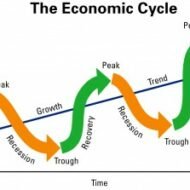Posted by Managementguru in Business Management, Economics, Principles of Management, Strategy, Technology
on Mar 26th, 2014 | 0 comments

Technological Impact on Business Environment and Society The tremendous technological growth that is being witnessed is made possible through extensive programmes of technological research being conducted by many types of researchers working within universities, business, and non-profit research organizations. Technological developments are strong and all pervasive forces of the business environment. Technology is the scientific knowledge to practical problems. Technology feeds on itself and it affects business in two major ways: Through its impact on society in generalThrough its direct influence on business operations and activities. Technology and Economic Growth: Technology affects society. In fact, we feel its effect in our everyday lives. It affects economic growth, our standard of living and our culture. However, some of the effects of technology are highly beneficial and some detrimental. These effects on members of the society may in turn affect business practices. We are surrounded by so much of technology, that we take it for granted and usually do not realize how much it affects us until we have to do without electricity, water, transport or telephone. Technological developments have raised the standard of living. In spite of inflationary pressure and considerably a high degree of unemployment, generally families eat better, wear a wider variety of clothing, and live in more comfortable homes. Technology and Lifestyle: Technology also influences basic aspects of our culture, including religion, education, mobility, health care, art, language, laws and their enforcement. For example, technological advances in health care allow physicians to treat their patients in a virtual environment through video conferencing, which again is helpful in legal environment too for the judges to proceed with investigations on hard core criminals, who need not be produced before the court for security reasons. Creative Destruction: Every new technology is a force involved in creative destruction. Say, television hurts movies, synthetic fibers are considered rival for cotton fiber. The discovery of new technology even sometimes affects economic growth-TV with its high entertainment value takes away productive hours of mankind. Each new technology creates major long term consequences, which are not always foreseeable. How do you justify nations spending more money to develop missiles, nuclear weapons and bombs for the sake of security? Developing nations have to buy technology from foreign countries, as they are not resourceful in terms of capital needed for Research and Development, expertise, patents, licenses, and equipments and so on. This transfer of technology involves huge costs as a result of which a vicious circle is formed, in which weak technology creates dependence and dependence creates weakness. Conserve, Reduce, Recycle: The recent trend can be enumerated through this slogan, “Conserve, reduce and recycle”. The stress today is on clean production measures, advanced robotics, zero-emition vehicles, material recycling and alternative fuels and materials. This change towards love for environment by the technologists is a sure sign of positive...

Posted by Managementguru in Change management, Economics, International Business, Principles of Management
on Mar 15th, 2014 | 0 comments

Factors That Influence Global Economy The industrial and business environment of developing countries has been subjected to a sea of changes owing to the economic reforms and policies in the light of globalization, privatization and liberalization. A long term economic vision is necessary for these countries to establish themselves in the global market which facilitates the process of becoming self sufficient in due course of time. Let me present you with a synopsis of how this change can happen and how countries are adapting themselves in lieu of the global economic boom. Multi Brand Retail Markets: Many multinational companies have acquired and are trying to acquire a major part of equity in multibrand retail markets of the host country and sometimes they opt for Joint ventures to factorize the economy of scale which also proves to be a win-win situation for both the parties. Developing countries have altered their economic views on foreign direct investment and are very liberal in their attitude in providing with the necessary licenses. The entry of multinational companies and their potential investment has even altered core sectors like power, oil and telecommunications. Moreover, the benefit of cheap labor, economic subsidies for the start of operations in economically backward regions lures foreign investors. Rush of Entrepreneurship: There is a rush of entrepreneurship in the developing countries, in the form of setting up of small scale industries, cottage industries for which liberal subsidies are provided by the governments to encourage the act of entrepreneurialism. Also people want to go for diversification, mergers and acquisitions in the wake of global competition. Capital Markets’ Role: Capital markets have gained new buoyancy. The rapid growth of stock market and its influence over the international economic scenario have made foreign brokers to keenly follow the market changes for potential investment. The one striking feature of the economy of developing countries is that, it is a self made economy and withstands the pressures of the business cycle, such as recession and inflation, unlike foreign markets that have failed to stabilize their markets owing to what is called sub prime lending, a plan that has failed to achieve the desired economic growth. Instead of making the capital market alive with fresh infusions of funds, it has left many banks and financial institutions bankrupt. Banking Sector: Banking sector has scaled to greater heights and has come under a competitive environment. Deregulation of interest rates to attract potential investors, new technology, products and aggressive marketing usher in new competition; disinvestment of government equity in nationalized banks have made banks to operate as commercial institutions and their services get marketed as branded consumer products. Financial services have emerged as a new business and funding options are aplenty increasing the chances of raising capital. This has evolved as a separate and major source of business fetching revenue to the service providers. Private Sector: Private sector is gaining importance in countries like India, where they have entered all the core industries like oil, mining, telecommunications, road building, railways, ports, civil aviation etc. This serves as a revenue source for the government and this kind of economic restructuring has brought a wave of enthusiasm amongst the potential investors. Imports have become an entrepreneurial activity and are out of the government domain and this has been facilitated by relaxation of licensing hassles. These are some of the recent trends in the developing countries that have captured the interest of multinational...




